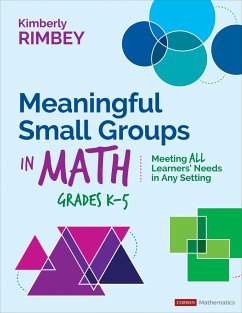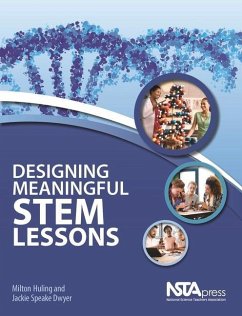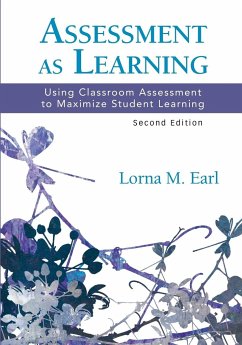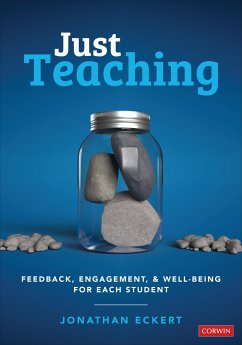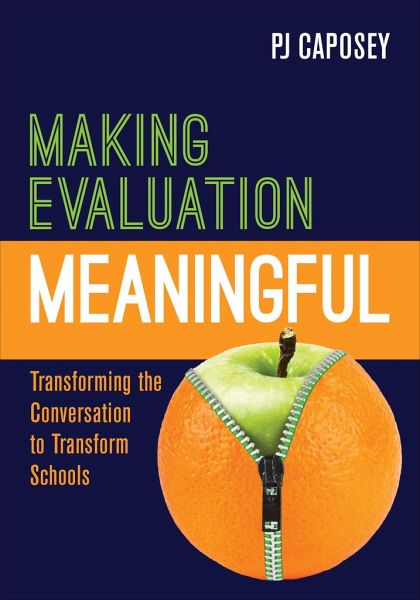
P J Caposey
Broschiertes Buch
Making Evaluation Meaningful
Transforming the Conversation to Transform Schools
Versandkostenfrei!
Versandfertig in 2-4 Wochen

PAYBACK Punkte
24 °P sammeln!




Offering a fresh perspective on teacher evaluation, this book guides administrators on how to transform their process to improve teacher practice and, ultimately, student achievement.
PJ Caposey's has had a wide range of educational experiences throughout his career. Mr. Caposey's educational career began by receiving the Golden Apple Scholarship in high school which supports students pursue their dream to teach by providing scholarship money and training in return for a commitment to teach in a need-based area. Mr. Caposey did just that after completing his studies at Eastern Illinois University by teaching at Percy Lavon Julian High School in the inner-city of Chicago. After completing his administrative certification at National Louis University, Mr. Caposey served as an Assistant Principal in Rockford Public Schools before becoming the principal Oregon High School at the age of 28. After arriving at Oregon High School, Mr. Caposey and the school have received many honors. Personally, PJ was acknowledged by winning the Illinois Principal's Association/Horace Mann Partners in Education Award and IPA Principal of the Year for NW Illinois. Additionally, Mr. Caposey personally has been selected as an Award of Merit winner by the Those Who Excel program sponsored by the Illinois State Board of Education, was honored as one of the nation's top young educators when announced as an Honoree for the ASCD Outstanding Young Educator Award, has been named an ASCD Emerging Leader. PJ was named one of 25 Superintendents to watch nationally by NSPRA and won the INSPRA Distinguished Service Award of Excellence in 2016. More importantly, Oregon High School was named one of the nation's top high schools by US News and World Report in 2012 and one of the top 2000 high schools in the country by Newsweek in 2013. Meridian has also received multiple national distinctions which will be released to the public in Fiscal Year 2017. PJ recently earned his Doctoral degree through Western Illinois University and continues to write and guest blog for many websites such as Huffington Post, Eye on Education, ASCD, Edutopia, My Town Tutors, and Test Soup. PJ has also penned two books - his most recent co-authored with Todd Whitaker - named Building a Culture of Support: Strategies for School Leaders and Teach Smart: 11 Learner-Centered Strategies to Ensure Student Success. In addition, Mr. Caposey also serves as an adjunct professor for Aurora University within their educational leadership department and a principal coach for SUPES Academy. PJ is a sought after presenter, consultant, and professional development provider and has spoken at many local, state, and national conferences. A short list of those entities which PJ has presented on behalf of include: ASCD, Illinois Principal's Association, National Rural Educators Association, AdvanEd, and many others. PJ also enjoys the opportunity to work in different consultative capacities for schools and other organizations. PJ served as the Oregon High School principal for four years and currently is in his third year as the Superintendent of Meridian 223. He is married, also to a teacher, who works with gifted students, and lives with his four children: two sons, Jameson and Jackson; and twin toddlers, Anthony and Caroline, in the Northwestern part of Illinois.
Produktdetails
- Verlag: SAGE Publications Inc
- Seitenzahl: 152
- Erscheinungstermin: 21. Dezember 2017
- Englisch
- Abmessung: 254mm x 180mm x 10mm
- Gewicht: 332g
- ISBN-13: 9781506378893
- ISBN-10: 1506378897
- Artikelnr.: 47831425
Herstellerkennzeichnung
Libri GmbH
Europaallee 1
36244 Bad Hersfeld
gpsr@libri.de
Für dieses Produkt wurde noch keine Bewertung abgegeben. Wir würden uns sehr freuen, wenn du die erste Bewertung schreibst!
Eine Bewertung schreiben
Eine Bewertung schreiben
Andere Kunden interessierten sich für


